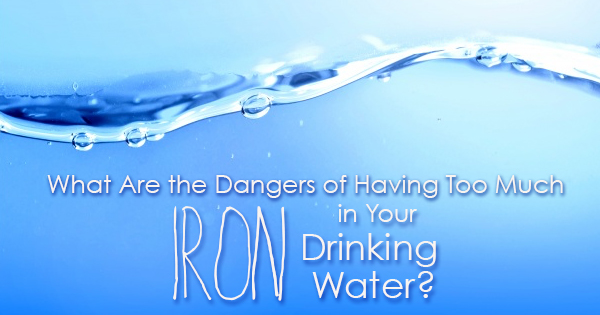
Iron is one of the many minerals that are essential for human health. Without iron, people may experience anemia, fatigue, or an increase in infections. But how much iron is too much? Drinking water that contains iron can be beneficial to your health. However, excessive iron in drinking water may have negative effects. Let’s look at a few reasons people may consider removing iron from water.
Poor skin: When someone drinks water with excessive amounts of iron, they may experience negative effects on their skin. Because minerals, like iron or magnesium, can damage healthy skin cells, people may notice early onset of wrinkles. Additionally, because water and iron don’t physically mix well, people may notice leftover soap residue after showering or bathing. This soap buildup can also cause skin problems.
Iron overload: Iron overload is a health effect caused by a mutation in the gene responsible for digesting iron. While this disorder isn’t extremely common, it’s still a reason to consider removing iron from water. Iron overload can lead to hemochromatosis — which can cause damage to the liver, heart, and pancreas. There are plenty of health concerns associated with too much iron intake, which is one of the main reasons people on well water should schedule annual water testing.
Plumbing issues: If a home’s water is filled with iron, it may lead to plumbing issues. Excessive iron can leave behind a residue, which can then build up and cause clogging. When this occurs, homeowners may experience reduced water pressure or slow draining. This is yet another reason to consider removing iron from water. Plumbing problems can cost homeowners big time — in fact, a leaky sink or pipe can waste about 900 billion gallons of water each year.
Metallic taste: While a bad taste isn’t a major concern when it comes to water contamination, it can certainly make food and drink less appealing. Without the right water treatment, iron can lead to a metallic taste in food and drink. Overall, a bad taste from drinking and cooking water is never a good sign. So while normal levels of iron in drinking water won’t have a negative impact on human health or well being, excessive amounts can certainly do harm. If you’re noticing any of the signs of excessive iron in your drinking water, make sure to get your water tested sooner rather than later.
